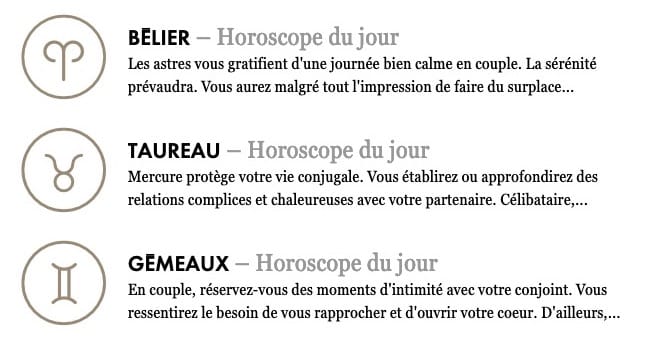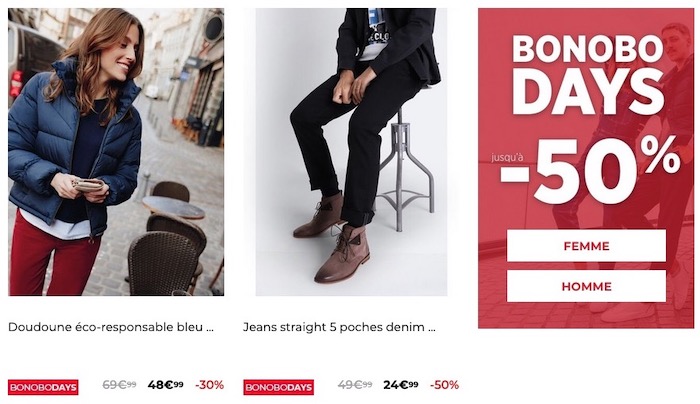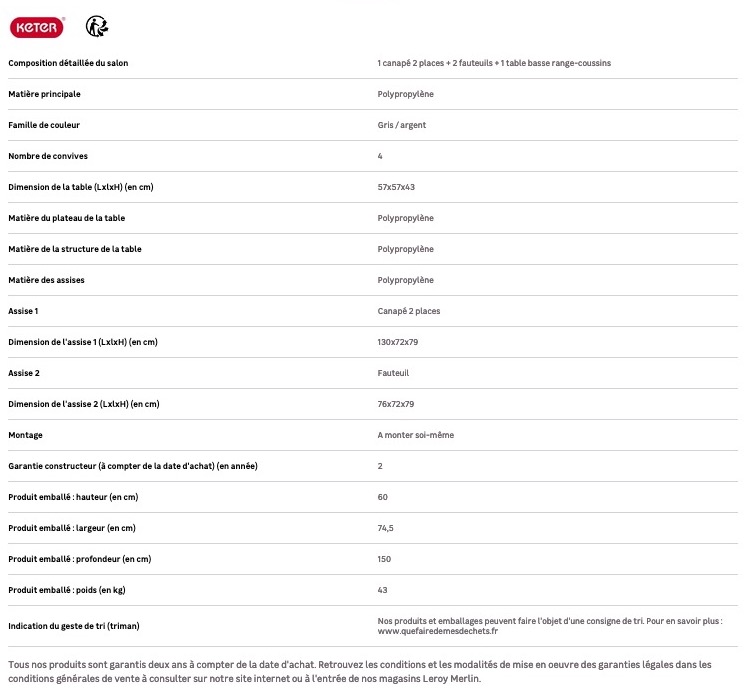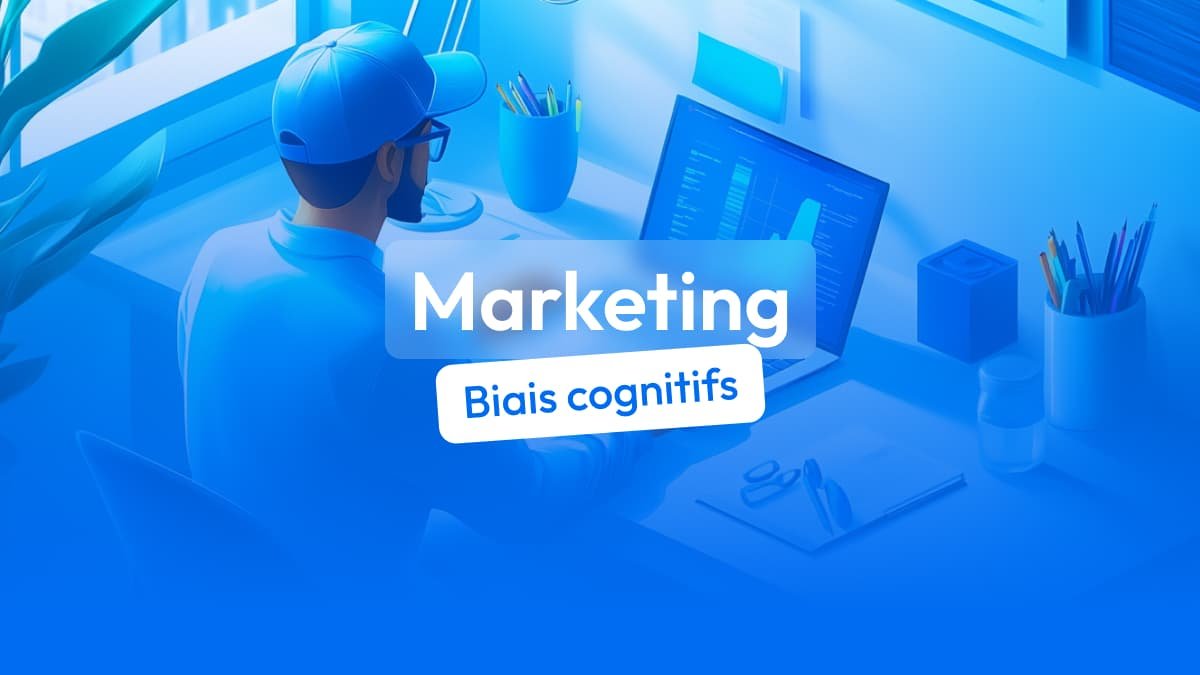Cognitive biases allow marketing to send messages to pass or encourage action without even that the consumer realizes that he is subject to a marketing message.
Find out which 20 cognitive bias are most used in marketing and try to set them up for your business in order to increase your attractiveness, sales or incoming leads!
1. The fashion effect
If there is a technique that works with consumers, it is the fashion effect. As soon as everyone adopts a product, your prospects are also more likely to buy it. It is, in part, on this bias that the Influence marketing.
2. Group thinking
As a human, the need for belonging is very strong. By nature, the fashion effect can be made even more famous with group thought: “ If all my friends use it, I also have to buy it! ».
In marketing, this bias is used with customer testimonies or the use of influencers.
3. Empathy


Emotions play an important role in consumer decision -making.
For advertisements, marketing specialists take action heroes who manage to overcome difficulties thanks to a product/service.
By effect of empathy, the consumer identifies with the hero and decides that this product is what he needs.
Read also: Emotional intelligence, the strategy to conclude your sales
4. The barnum effect


The barnum effect occurs when a consumer believes that a large description applies specifically to him. The example of horoscopes remains the best illustration of this cognitive bias.
In marketingit is a question of finding a value proposal that will speak to your audience, in the broad sense.
5. Freedom of mind
Even if the fashion effect and group thought remain a reality, some consumers like to place themselves against the tide.
If the profile of your audience has a rebellious character, distinguishing itself from fashion effects is a particularly formidable cognitive bias!
6. The framing effect


The framing effect designate the art of presenting your product or service. For example, you can transform certain reproaches, made towards your brand, into force. The best is to use humor or a play on words to transform a positive point.
In marketing, framing is often used in a statistical version to influence consumer perception. When you say: “85% of users would recommend our product to their loved ones”, prospects forget that 15% of users would not recommend your brand!
7. The principle of authority


This cognitive bias describes the tendency of consumers to consider the opinion of a figure of authority. As soon as a product is supported by a recognized doctor, star or expert, he immediately seems more qualitative.
Have you noticed that toothpaste tubes are often recommended by dentists in advertisements?
8. Abundance of choice
The abundance of choices consists in presenting the consumer a lot of information. At the end, the latter finds himself choosing the simplest and sometimes the least effective option.
Understanding this cognitive bias helps to optimize your marketing campaigns: so that they are efficient, avoid drinking your prospects with too much data and a too wide choice.
Facilitate their reflection by offering limited options, in accordance with their needs.
9. Fear of losing or missing


The fear of losing or missing is based on strong emotional reactions. Customers do not want to miss an opportunity to buy a limited edition product or enjoy a good deal.
To use this cognitive bias, brands often play on theemergency and Exceptional promotions.
10. The effect of rarity


Here, the consumer gives more importance to a rare product than another, available in abundance.
A product in “limited edition” will sell more easily and quickly.
11. The feeling of urgency


The feeling of emergency implies that the consumer must quickly choose an exceptional offer.
The objective is to avoid potential customer to think too much and to promote the “crush” to the detriment of a rational reflection.
12. The effect of the choice of Hobson +1
Consumers are more likely to decide when they have the choice between two options.
This is what the effect of the choice of Hobson +1 comes down.
13. Social influence
From a marketing point of view, social influence is a way to show customers that people, who resemble them, use and appreciate a product or service.
THE Influence marketing is based on this cognitive bias, especially at the time of Choose the Ambassadors' profiles.
14. Multifunction needs
Consumers tend to pay more for products/services with several features.
This, regardless of their usefulness or their compatibility with their needs.
15. The principle of visual benchmark


This cognitive bias is often used in web design. In order to focus the attention of a prospect, an image or an icon is used.
A % to announce a promotion, an arrow to draw attention to a specific product or a star to show bestsellers.
The goal is to direct the visitor's attention.
16. Middle preference
Faced with several aligned products, consumers often prefer that of the environment. There is no effort to look at it, unlike those located above, below or next to it.
If you want to promote a specific product, remember to place it in the middle of your page.
17. The restraint of the new
Consumers give more importance to new information.
The last opinion posted on a product will have more impact than the ancients.
18. The need for additional information


This cognitive bias characterizes our tendency to seek information, even if they do not affect the decision of the purchase.
Marketing specialists use it to flood consumers of information on a product or need.
19. Familiarity bias
Content marketing and social networks strongly support this cognitive bias! The latter explains that consumers are more likely to buy from a brand they often hear about.
The more familiar a business or product, the more weight it will have at the time of the purchasing decision.
20. Humor


If you can make a consumer laugh, he will remember you.
Humor creates an element of surprise in marketing and diverts the brain from the importance of a purchasing decision.
What is a cognitive bias?
A cognitive bias is a systematic distortion in the way we perceive, analyze and interpret the information. It is a mental shortcut that our brain borrows to make decisions quickly, often without conscious effort. These biases are the fruit of our evolution: in a complex environment, they allow us to react quickly … but not always in a rational way.
In a marketing context, understanding these mechanisms becomes strategic. Indeed, our purchase choices are rarely based on a purely logical analysis. They are influenced by emotions, habits, social perceptions or the way in which information is presented to us. The cognitive bias exploited skillfully can thus transform a simple visitor into a convinced customer.
What is cognitive marketing?
Cognitive marketing is an approach based on behavioral psychology to influence purchasing decisions. It aims to understand how consumers think, feel and react in a commercial environment, in order to adapt the messages, supports and experiences offered.
Unlike traditional marketing which often bet on the characteristics of the product, cognitive marketing is primarily interested in consumer perception and behavior. He seeks to activate good mental levers to maximize commitment and conversion.
Some examples of application of cognitive marketing:
- Structure a web page according to the environment of the environment to highlight a flagship offer.
- Use the effect of rarity or the feeling of emergency in e-commerce campaigns.
- Press advertising on the principle of authority or humor to increase memorization.
Cognitive marketing is a powerful discipline, which makes it possible to reconcile commercial efficiency and fine understanding of human mechanisms. An essential approach for brands wishing to create a strong and lasting emotional link with their audience.
Apply cognitive marketing to your business
Knowing the cognitive biases that work on its audience allows you to adapt its marketing campaigns, its content and even the design of your website. What are you waiting for to test these different biases on your prospects?
To change the design of your site, write your product sheets or create striking banners by incorporating cognitive marketing biases, think of Coder.com freelancers !
Many professionals are available to support you in your projects. Receive their quotes for free By publishing your ad now!
